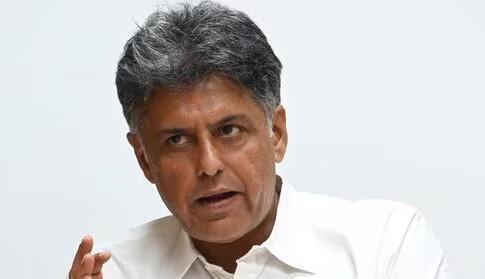
Against Constitution: Tewari on Bills to Remove Jailed PM, CMs
Recently, Union Minister Amit Shah presented three bills in Parliament that propose the removal of Prime Ministers, Chief Ministers, and Ministers who are facing serious criminal charges. This move has sparked widespread debate and criticism, with many arguing that it goes against the basic structure of the Indian Constitution. One such voice of dissent is Congress MP Manish Tewari, who has vocally opposed these bills, terming them as “against the grain of the Constitution”.
In an exclusive interview, Tewari shared his concerns about the potential implications of these bills and how they could be misused by the government. According to him, the Indian Constitution is built on the principle of “innocent until proven guilty”, which means that an individual is presumed innocent unless proven guilty in a court of law. He believes that the bills being proposed are a departure from this fundamental principle and could lead to the arbitrary removal of political opponents.
“The Constitution says that one is innocent until proven guilty. The assumption of innocence is a basic principle of our criminal justice system. These bills, on the other hand, assume the opposite – that one is guilty until proven innocent. This is a fundamental shift in our approach to justice and it is deeply worrying,” Tewari said.
He also pointed out that the potential for misuse of state instrumentalities under these bills is enormous. With the ability to remove a Prime Minister, Chief Minister, or Minister simply because they are facing serious criminal charges, the government could use this provision to get rid of its political opponents and silence dissenting voices.
“The bills give the state an enormous amount of power to remove individuals from positions of authority. This means that the government can use this provision to get rid of its political opponents, silence dissenting voices, and eliminate any potential competition. It’s a recipe for disaster and a direct attack on the principles of democracy,” Tewari emphasized.
Tewari also highlighted the lack of transparency and accountability in the bills. According to him, there is no clear mechanism for removing a Prime Minister, Chief Minister, or Minister, and the bills do not specify the grounds on which such removal can be made. This, he believes, leaves the door open for arbitrary and capricious decision-making.
“The bills do not specify the grounds on which a Prime Minister, Chief Minister, or Minister can be removed. This means that the government can use this provision to get rid of anyone it wants, without any accountability or transparency. It’s a recipe for abuse and corruption,” Tewari warned.
In addition to the concerns about the constitutionality of the bills, Tewari also highlighted the potential impact on the functioning of the government. He believes that the ability to remove individuals from positions of authority could lead to a collapse of governance and stability.
“The bills could lead to a collapse of governance and stability. If a Prime Minister, Chief Minister, or Minister can be removed at the whims of the government, it means that there will be no stability and no continuity in the government. It’s a recipe for chaos and instability,” Tewari emphasized.
In conclusion, Tewari’s opposition to the bills is based on his deep commitment to the principles of democracy and the Constitution. He believes that these bills go against the grain of the Constitution and could lead to the arbitrary removal of political opponents and the collapse of governance and stability.
It remains to be seen whether Tewari’s concerns will be heard and whether the bills will be passed into law. One thing is certain, however – the debate over these bills is far from over, and it will be up to the citizens of this country to hold their elected representatives accountable for their actions.






